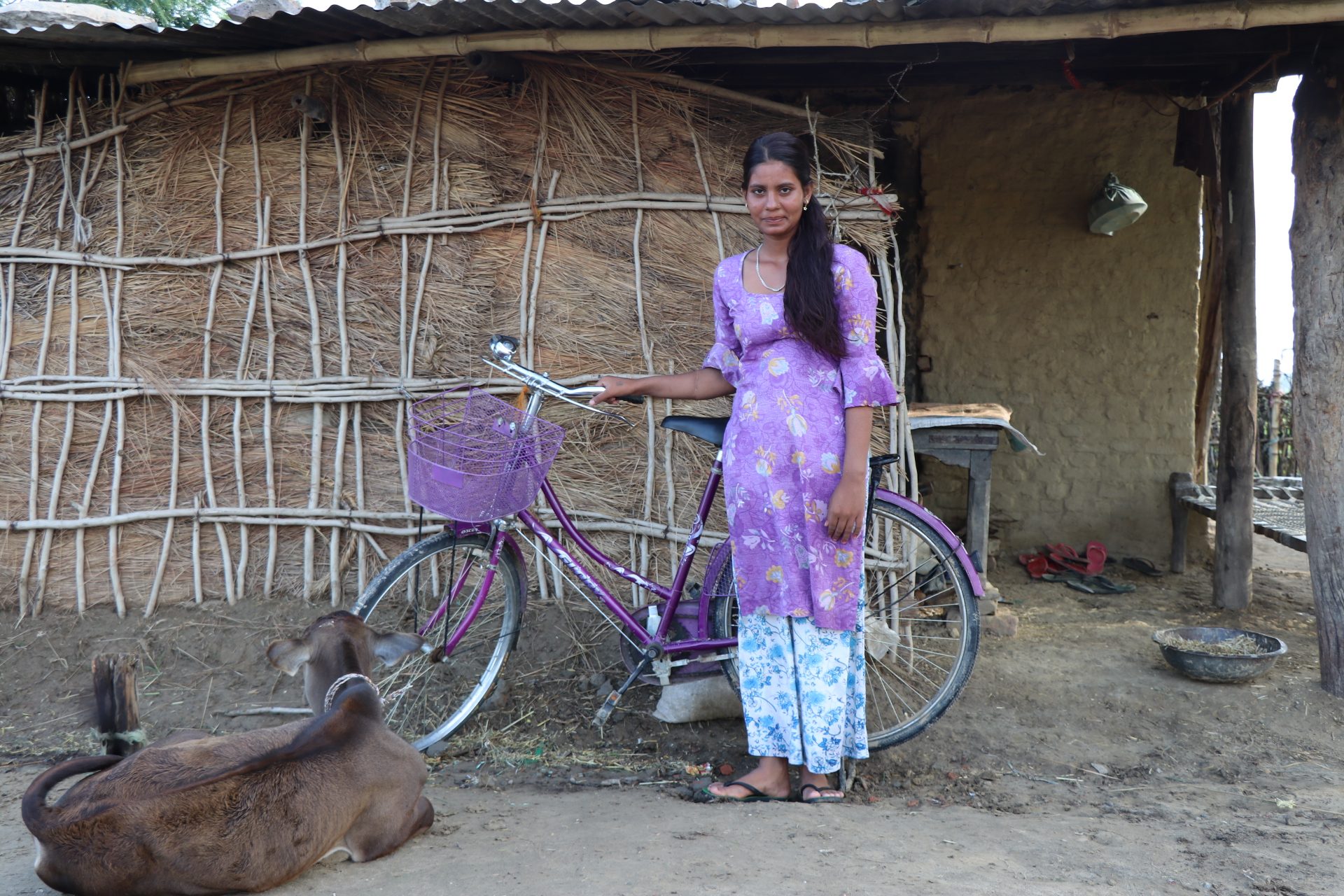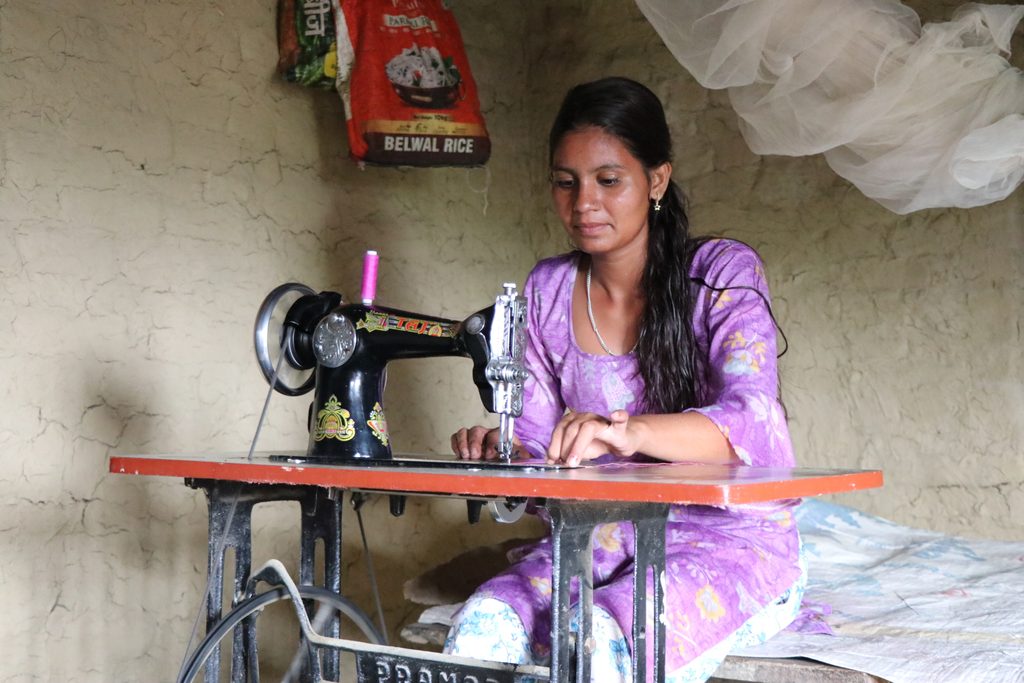Skills training helps prevent child, early and forced marriage
Parbarti is among a number of young women in Nepal who are learning new skills, earning money and taking the lead on their futures so they can say no to child, early and forced marriage.

Nepal has one of the highest rates of child marriage in Asia, despite laws against it. Figures show that 33% of women in Nepal between the ages of 20-24 married before the age of 18.
Plan International Nepal’s NORAD-funded project Girls Get Equal: Preventing Child, Early and Forced Marriage is supporting girls and their families at the risk of child marriage to increase their skills and generate income to avoid early marriage.
“Girls of my age in my community are already married. My parents face humiliation because I refuse to get married,” says Parbati.
Child marriage a reality for girls in Nepal
Like thousands of other girls in Nepal, Parbati lived in daily fear of being forced to do something she didn’t want to. In Parbati’s community it’s common practice for girls to marry at a young age.
When she was 19, Parbati’s fears almost became a reality. One day, her relatives visited her parents to discuss aranging Parbati’s marriage with a 22-year-old man living in the neighbouring district. She was not told anything about the preparations until her mother announced that she would be getting married soon.
I dream of becoming a strong woman who is independent. I want to work hard and open a tailoring shop in 5 years.
“I stopped my studies after the grade 10 examinations,” says Parbati. “I am from a poor farming family. My father is a mason and my elder brother is a labourer. Our income was not enough to support both me and my younger brother’s education.”
Parbati wanted to find work so she could support her family. “My mother is sick. She needs my care and attention. If I was independent, I could pay for her treatment in India.”
Education key to stopping child marriage
Firm in her resolve, Parbati decided to stop her marriage. She spoke to her father and expressed her wish not to get married. “During my school days, I learnt about the impact of child, early and forced marriage. Nepal has strict laws. It is punishable.”
“My brother has not been forced into marriage, he is 22 years old,” continues Parbati. “It is difficult for girls in my community. If they are not married, they are a burden for their family.”
Plan International is working in Nepal to ensure that girls like Parbati can make their own choices about their futures. Alongside our implementing partner BEE Group, we are providing vocational training opportunities for girls at high risk of early marriage. When girls have the skills to earn an income, they are no longer viewed by their families as a burden.
“I received tailoring training for 3 months. I learnt basic tailoring skills as well as information on life skills such as gender-based violence, child marriage, and much more,” says Parbati. “Today I work in a tailoring shop. I make around 6-7 items of clothing a day.”

Skills training supports girls’ independence
Following her training Parbati received a sewing machine which she uses to make a little additional income. “This has made my life easier. I can spend my free time at home making clothes to earn extra money.”
As well as her income from sewing, Parbati takes on farm work when it is planting season. “I learnt farming from my mother. I work on other people’s farms planting rice during monsoon season.”
Parbati is happy that she is now able to support her family, especially her younger brother. “I buy his stationary, uniform and pay for his lunch. I want him to continue his studies and become a good person,” says Parbati. “I am proud that I do not have to ask for money from my father for my needs. I buy food like salt, sugar, and oil. The rest I save with a savings group.”
Although her mother is proud of Parbati’s activities, she still fears for her daughter’s safety. Their home is right beside the highway and men regularly visit to express their wish to marry Parbati. But after taking part in training on the dangers of early marriage, the family have agreed to let Parbati make her own decision as to when to marry.
“It’s all about trust,” says Parbati. “Therefore, my father supports me in my all my decisions now. If someone approaches them about my marriage, my father stands with me and my choice to only marry after I am 25 years old.”
For now, Parbati want to concentrate on learning new sewing skills and techniques. “I dream of having my own shop and employ girls like me who refuse to get married early. I would like to continue my studies but our economic situation is not good enough for that so I would rather support my family through my earnings.”
Addressing norms and attitudes leading to child marriage
Plan International is equipping girls with livelihood skills as part of our Preventing Child, Early and Forced Marriage programme funded by NORAD. The project is raising awareness in communities to tackle the root causes of child marriage and supporting parents to address the damaging social norms and attitudes that lead to gender inequalities and the acceptance of early marriage.
“I dream of becoming a strong woman who is independent. I want to work hard and open a tailoring shop in 5 years. There are many girls in my community who are married off at an early age. They often return home after facing violence in their marriage. I want to support them, transferring my skills to them by employing them.”


